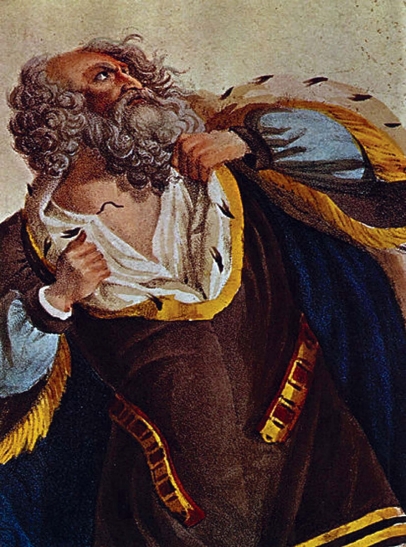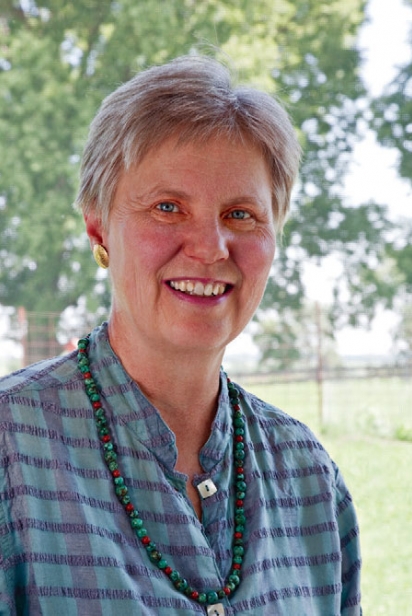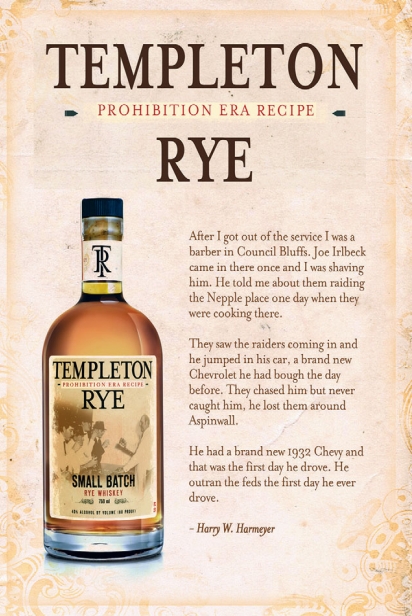“Old Farmers Never Die”
THEY JUST LOSE THEIR LAND
All Recipes Are Home
Food comes from the earth, and Iowa farmers have a tough row to hoe when faced with the question, “Who gets the farm when I die?”
Iowa’s Poet Laureate Mary Swander says in her new play, “Map of My Kingdom,” it’s a question that cannot be ignored.
“Map” broaches the convolutions of land transition. It’s a simple one-woman show with a chair and handful of file boxes for a set. The lone actor, attorney Angela Martin, shares stories of farmers and landowners she’s met who have dealt with their land successions in a wide range of ways, some sane, some dramatic:
The old man, he got so wore out he took to sitting on his porch with his shotgun each time one of the brothers came around, trying to make his case—he’d sit there with the gun in his hands and:
“I’ll will the farm to my dogs if you don’t leave me be.”
Swander is a professor of English and a Distinguished Professor of Liberal Arts and Sciences at Iowa State University and has written poetry and non-fiction books, plays, radio and TV scripts and magazine articles, appearing in The New Yorker, The New York Times Magazine, Poetry Magazine and on National Public Radio.
Swander talked about “Map” at her home, an old Amish schoolhouse where she raises geese, goats, a large organic garden, and plays the banjo.
“People ask me how much I write each day, and that’s not the way I usually work,” she said. “When you have a major teaching job, the only way you can do it is to wedge things in around all your other duties and obligations. I don’t have a set writing time. I’m like, ‘Oh, wow, I’ve got twenty minutes, isn’t that the most wonderful thing in the world’ and so I try to get something done.”
“Map” was commissioned by Practical Farmers of Iowa, a large, Ames-based networking organization for conservation-minded farmers.
“They asked me if I’d write a play about land transition— basically, who’s going to get the farm?” Swander said. “So I went to work on it, and it’s one of the most conflict-ridden, explosive topics I’ve ever taken up.”
She interviewed farmers and went to seminars, listening to responses, many of which were woven into the play’s fabric.
“When I told them what I was working on, they’d go ‘Oh, that happened to my family!’ And then you’d hear another story,” she said.
“Map” references the Bible, the Quran, Willa Cather, Shakespeare and Jane Smiley, former Iowa State professor and Pulitzer Prize winner in 1992 for her novel “A Thousand Acres,” wherein an aging Iowa farmer divides his land among his three daughters, like William Shakespeare’s King Lear.
“We’re old friends, we’re colleagues, we’ve taught together for 15 years,” Swander said of Smiley, who is mentioned in the play. “ ‘A Thousand Acres’ is a great book.”
Swander distilled “Map of My Kingdom” from Lear’s speech as he tests his daughters Goneril, Regan, and Cordelia:
Give me the map there. Know that we have divided In three our kingdom: and ‘tis our fast intent To shake all cares and business from our age; Conferring them on younger strengths, while we Unburthen’d crawl toward death.
Swander didn’t grow up on a farm, but her great-grandparents were Iowa homesteaders.
“I know of four generations of land transition in my own family, and I know how complicated it can be,” she said.
Swander said “Map” was designed to launch discussion.
“It’s done a great job of hat — the first show we did, I heard people walking out of the theater saying things like, ‘Oh, wow, we’re 65 years old and we haven’t thought about this issue.’ It’s time to think about it. There’s a vast amount of land in the United States owned by people 65 and over, and a lot of those people are women.”
An estimated 50 percent of Iowa farmland is owned by women.
“Often, a woman will end up with the farm, one way or another. With no children is one scenario, with ten kids is another scenario — all wanting a piece of the pie.”
The Big Question is this: To whom do you will the farm? Or do you sell the farm? Do you put it in a trust, or do you gift it? Do you divide it evenly or do you will it to the child who’s been there on the farm with you taking care of you in your old age? Do you will it to the most capable child that’s interested in farming, or the one with the financial brains? Do you have one child buy out the others?
“I cannot emphasize how much attention people should give it, think it through and have a plan in place that meets their goals.”
Swander said the first question to ask is “What is the goal for your land?”
“You get vastly different answers,” she said. “Some people say, ‘I want to improve the land and have it be in better condition than when I inherited the farm.’ Other people say, ‘I want it to become as valuable as possible’ and that may mean selling it to the shopping center.”
Some folks are urged on by a desire for harmony, and that might mean selling the farm just so all the kids can agree on an outcome.
Any time we talked about the farm, I showed them how to conduct a formal business meeting, take minutes, use Robert’s Rules of Order.
We were making progress. Real progress.
Then the father passed away.
Swander said it’s also helpful to have some kind of mission statement. Consider the myriad options:
“People work with different people,” Swander said.
“Sometimes it’s a lawyer, an accountant, a land manager. Sometimes they do their own research and make up their own mind about what they want to do. You really need to think clearly, carefully, in an informed way. You don’t want to just pull something out of the sky, [doing] what you’ve seen your neighbor do, because their situation, of course, is going to be different than yours.”
And what your father did, perhaps right for him, may not work for you in your case.
Take a hypothetical situation: A 65-year-old woman with no will and no heirs to speak of, dies. What happens?
“That’s a bad thing and one of the reasons I wrote the play,” Swander said. “It’s a tough thing because it means you have to face your own mortality, you have to face your own monetary situation, and sometimes you have to discuss that with your children or with the relatives, which you don’t want to do, or even talk about it with the lawyers. So there are lots of reasons to put it off. Don’t put it off.”
If you don’t have a will, at least go home and write something on a piece of notebook paper. Better yet, make it official.
“I’ve had wills since I was 20 years old, and I really don’t see the hesitancy people have,” Swander said. “Now you can get online and make your own will. The costs shouldn’t hold you back anymore.”
Will-making is a time-consuming chore, and because we don’t sit around contemplating our own deaths on a regular basis, it’s easy to push it to the back burner.
Another example: Mom and Dad live together, are in their 60s and have grown children. The parents die at the same time, a car accident perhaps.
“That’s a bad one,” Swander said. “That’s a messed-up scenario. If they don’t have a will, the state has to step in and you don’t want that. Both parents dying at the same time is a real possibility for people.”
The Iowa State Bar Association says, “If you die without a valid will, you have no control over where your property goes. Instead the laws of the State of Iowa make that decision.”
Okay, that all sounds dreadful for anyone who’s a downstream island in the river of life, but why should anyone who doesn’t own land see the play? Why should they care?
“Most people own something, and it’s the same situation: If they don’t set up a transfer for whatever it is, even if they own something very simple, it’s going to have to be dispersed,” Swander said.
Basically, the farmland in the play can be a metaphor for anything you own—the sum total of a life.
On a larger scale, more and more people are living in cities; the cities are expanding, taking away more and more farmland.
“We have fewer and fewer farmers because farms are getting bigger and bigger, and so the loss of farmland is significant,” Swander said.
Add in the unplotted curves of climate change and our food supply is in a precarious position, Swander said, so all people are impacted by the loss of farmland.
“We should be concerned about how we’re managing our natural resource of tillable soil, and the natural environment that’s around us,” she said.
“Map” also brings up the concept of land ownership itself. Can anyone really own a piece of the earth?
“As you can see in this play, we’re trying to carve it up and dole it out,” Swander said. “So that makes us pause and think: How do we treat this land that we call home?”
“Map” is no longer an Iowa-only play; Swander said she’s received interest from New York and Massachusetts. A woman in Wisconsin told her, “I really want to see this show; it’s been my life for the last two years.”
If “Map” goes on the road, will Swander make appearances in far-off lands?
“We’ll see,” she said. “I have to balance my own time.”
A quote from Willa Cather’s first novel, “O Pioneers!” brings the curtain down:
We come and go, but the land is always here. And the people who love it and understand it are the people who own it — for a little while.
You can read more about Practical Farmers of Iowa at PracticalFarmers.org and follow Mary Swander’s wanderings at MarySwander.com.







